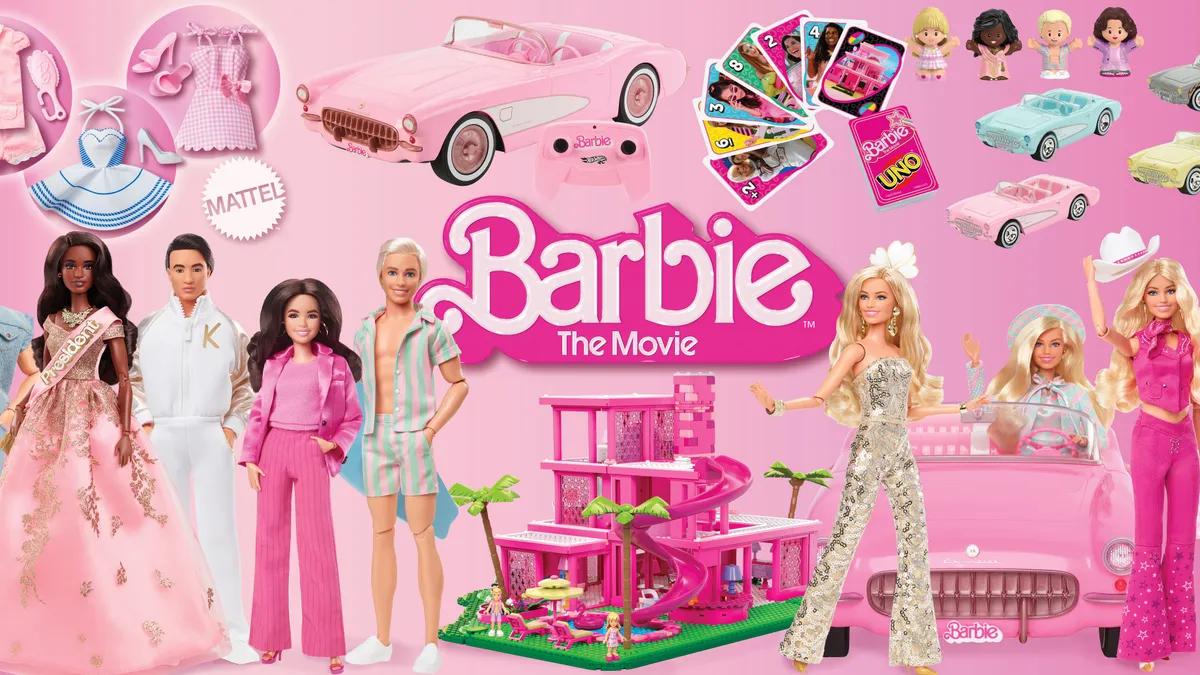Dive Brief:
- With Mattel’s Q3 net sales down nearly 6% year over year to $1.7 billion, the toy maker more than ever needs a strong holiday season.
- Executives said they expect one. “Consumer demand has been strong all year, and it's still strong now,” CEO Ynon Kreiz told analysts Tuesday.
- Net income in the period plunged 25% to $278.4 million, and gross margin fell by 310 basis points to 50%. The margin contraction was mostly due to currency exchange, inflation, tariffs and higher sales adjustments, partially offset by cost savings, the company said.
Dive Insight:
Mattel missed topline expectations in the third quarter, setting up the holidays to be especially important this year.
“Management’s outlook is predicated on continued [point of sale] strength and retailer restocking, but any shortfall in Holiday demand could pressure results,” Jefferies analysts led by Kylie Cohu said in a Wednesday client note.
UBS analysts led by Arpine Kocharyan similarly noted that, while investors always expected Q4 to weigh heavily on the toy maker’s half-year performance, Q3’s sales decline “implies riskier dynamics heading into holiday season.”
In its release Tuesday, the company reiterated its guidance for the year: Mattel continues to expect net sales to rise 1% to 3%, in constant currency, and adjusted gross margin to land at about 50%. Executives emphasized that demand for toys has been healthy all year.
“And this is, by the way, not just for Mattel,” Kreiz said, noting that the industry overall is up high-single digits. “So the toy industry is probably — in terms of level of growth — much higher than the traditional low-single digit at this time. So a lot of momentum overall.”
The company has been scrambling to adjust to challenges brought on by tariffs. In order to mitigate the impact of new import duties imposed by the Trump administration, many retailers have shifted from direct importing to domestic shipping. This leaves Mattel to handle importing and warehousing the goods, according to Chief Financial Officer Paul Ruh. Retailers have also been making smaller, more frequent orders to ensure they have the right inventory level.
“It's a more just-in-time and with more frequent order mechanism,” Ruh said, who called the situation an anomaly. “And given our scale and supply chain capabilities, at a high level, the economics to us are similar for both direct import and domestic, which is actually different for other players in the industry who are more geared to direct import.”
At the moment, inventories are well balanced ahead of the holidays, he said. Mattel ended Q3 with $827 million in inventory, an $89 million increase from last year, reflecting “tariff-related costs, foreign exchange and the buildup of inventories in response to retailers shifting from direct import to domestic shipping,” he said. Meanwhile, retail inventories are “modestly lower” year over year.
“Retailers are restocking to meet the expected consumer demand ahead of the holiday season,” Ruh said. “So all of this bodes well for a strong holiday season and also for a good ending of the year.”
Otherwise, the company hasn’t seen the full impact of tariff costs yet, though they are expected to show up in Q4, Ruh said. At the end of Q2 and beginning of Q3, Mattel and its retail partners raised prices to soften the impact. But no decision has been made about combating tariffs and other inflationary pressures via pricing, he said.
















